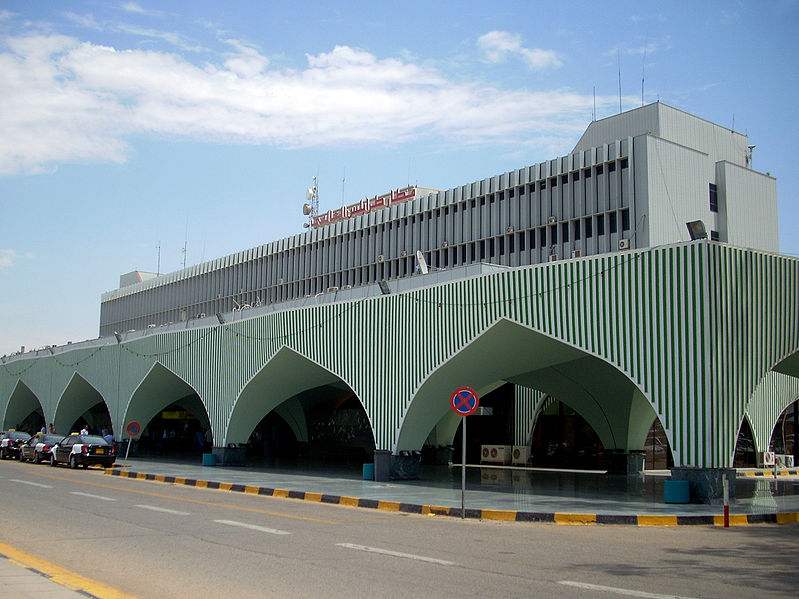On March 6, factions in eastern Libya gathered in the city of Benghazi to revive federalism, a system previously adopted in . . .[restrict]Libya in 1951 when what was then the United Kingdom of Libya achieved independence. Twelve years later, the system was abolished by Libya’s only monarch, King Muhammad Idris Senussi. Now revivalists have chosen Ahmed Zubair Senussi, a relative of the former monarch and former prisoner of the Qaddafi regime, to head the newly formed Cyrenaica Provincial Council. The council is leading a movement that aims to transform Libya into a federal state along boundaries first drawn by the Ottomans and later redrawn by the Allies after they ended Italy’s occupation of Libya after the end of World War II.
Those who are pushing for federalism are predominantly from eastern Libya, home to the majority of the country’s known oil reserves. Their aim is to separate the administration of their province, Cyrenaica (Barqa), from the central government in Tripoli, thereby rendering nearly half of Libya’s territory semi-autonomous. They propose dividing the remaining territory into two semi-autonomous provinces: Tripolitania (Tarabulus) to the northwest and Fezzan to the southwest. This proposal has already fueled resentment and animosity in western Libya. Now that Benghazi is viewed as the cradle of Libya’s uprising, many in western Libya worry the federalists feel entitled to a larger share of Libya’s oil wealth. Fears that federalism could jeopardize Libya’s fragile unity and lead to prolonged civil conflict fueled protests in Tripoli, Benghazi and Fezzan.
The federalist movement stems partly from a widespread perception in eastern Libya that the deposed regime favored Tripoli’s economic development at Benghazi’s expense. However, if Tripoli was the center of Qaddafi’s power, it was also the center of corruption and oppression. Under the Qaddafi regime the air in Tripoli was thick with fear and injustice – just like everywhere else in Libya. And despite its economic prosperity relative to other parts of Libya, it suffered from intermittent water and electricity cutoffs. There was litter everywhere, and after every rainstorm, its potholed streets flooded with runoff water. Tripoli’s residents suffered as much as every Libyan from dysfunctional bureaucracy, a decrepit healthcare system, poor education and a corrupt justice system.
Libya’s eastern residents, especially those in Benghazi, have a right to feel proud of their historic role in the uprising. The entire country – indeed the entire world – knows that Libya’s revolution began in the east. It is also clear that without NATO’s enforcement of UN Resolution No. 1973, Qaddafi’s forces would have regained control of the country with devastating consequences for all Libyans. Let us also not forget the sacrifices and heroism of the people in Misrata, Zawiya, the Nafusa Mountains and other cities in the west. Tripoli may have not risen as other towns in Libya did, but the people of Tripoli did not have access to arms until the city was liberated. Without arms, how were they supposed to face the heavily armed loyalists of a brutal regime?
Federalism has been critical to the success of countries such as the United States of America, Australia, Canada and Brazil. But transforming a nation into a federalist state can be challenging. For example, the United States’ experiment with federalism had obstacles in the early decades of its inception. George Washington, America’s first president, described the unity of the thirteen colonies as being “tied with a rope of sand”, and 85 years later the nation fought a four-year civil war to prevent its southern states from secession.
In nations with vast territories and/or sectarian differences among the population, federalism may make sense. But Libya’s population of a mere 6.5 million has little or no divisive issues based on religious sectarianism or racial identities. The country is relatively homogenous; most citizens practice Sunni Islam, speak Arabic and identify themselves as Arabs despite their mixed Arab, Barber, Turkish and African Saharan ancestry. Approximately 90 percent of Libya’s inhabitants occupy a narrow coastal strip, mostly in Tripoli and Benghazi.
As Libya transforms itself into a democratic country, it should indeed consider any system that maintains peace and fosters prosperity. But pushing federalism at a time when it has almost no support in the west and south, when it has vocal opposition even in Benghazi, and when the country is struggling for unity is a grave mistake. Imposing a system against the will of the people is dictatorship; calling for provincial autonomy against the will of the majority is separatism. In light of the sacrifices Libyans have made for freedom, divisive politics that could lead to civil war must be avoided at any cost. Now is not the time for Libya to experiment with federalism – not when it is struggling to maintain its fragile unity long enough to develop a unifying system with fair and equal representation for all.
 Dr. Ismail Suayah is a former geology and marine scientist, currently working in the software industry. He lives in the United States in the state of North Carolina with his wife and two children. [/restrict]
Dr. Ismail Suayah is a former geology and marine scientist, currently working in the software industry. He lives in the United States in the state of North Carolina with his wife and two children. [/restrict]






